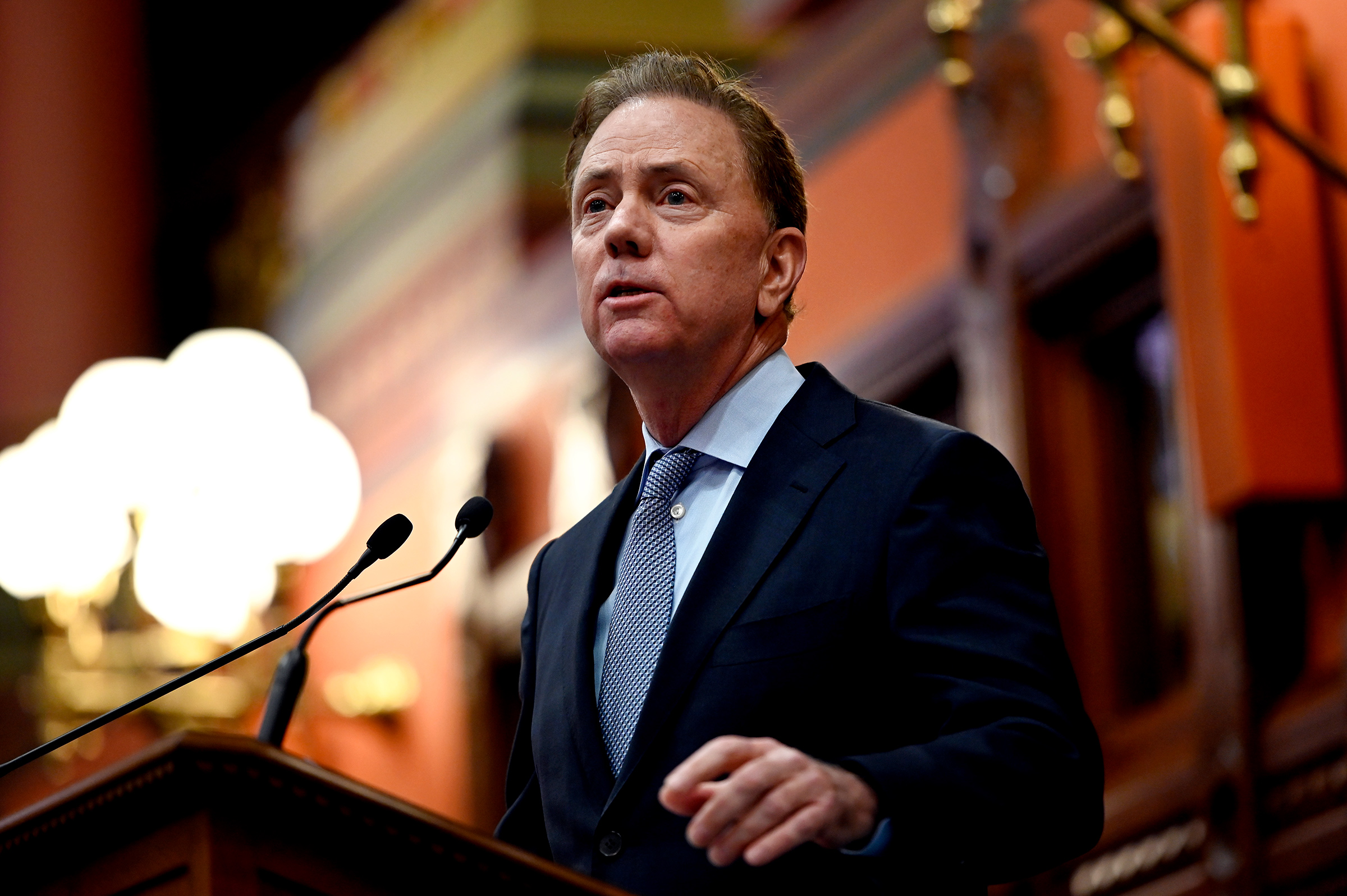Lamont Eases Up on Debt Diet to Win Support for Truck Tolls

Audio By Carbonatix

Gov. Ned Lamont started off the 2020 legislative session with his State of the State address at the State Capitol on Feb. 5, 2020 in Hartford, CT. Photo credit: Joe Amon/Connecticut Public (courtesy of CTMirror.org)
Gov. Ned Lamont added an average of $442 million to his two-year bonding proposal – about 20% more than he insisted Connecticut could afford when he took office 13 months ago.
By Keith M. Phaneuf, CTMirror.org
Gov. Ned Lamont cheated on his debt diet Wednesday to win legislators’ support for truck tolls, but it remains to be seen whether pork-barrel spending is on the menu.
The administration failed last spring to reach a deal with lawmakers on how much to borrow this fiscal year and next.
On Wednesday, Lamont upped the ante, adding an average of $442 million to his two-year bonding proposal. That’s about 20% more than he insisted Connecticut could afford when he took office last year.
Lamont now is recommending $2.5 billion in new borrowing for the fiscal year than ends June 30, and $2.61 billion for 2020-21. But not all of that is controversial.
At issue is a subset of those proposals, about $1.4 billion each year in general obligation (G.O.) bonding. This involves borrowing which, if approved, would have to be paid off out of the General Fund, the same part of the budget that supports municipal aid, higher education, social services and other popular programs.
The $1.4 billion in annual G.O. bonding Lamont now endorses is earmarked for job development and other economic development initiatives, affordable housing, renovations to courthouses and other state facilities, and grants for libraries and nonprofit social service agencies.
The governor is hoping that his fellow Democrats in the legislature will be appeased by this enough to support a major transportation rebuilding program.
If truck tolls or some other new revenue stream for transportation construction isn’t approved, Lamont said he would have to curb borrowing in most areas and focus a greater share of Connecticut’s bonding program toward rebuilding its highways, bridges and rail lines.
Meanwhile, Republican lawmakers, who oppose tolls but favor less overall borrowing, are worried not just about Lamont’s new willingness to borrow, but whether some of it will go toward pork-barrel spending.
“The governor went way off his debt diet,” Senate Minority Leader Len Fasano, R-North Haven, said Wednesday. When it became clear last week that Lamont would accept more bonding, the GOP leader charged the governor with “buying votes” for tolls. Democratic leaders say they don’t expect a vote on tolls until later this month.
The definition of pork varies greatly from legislator to legislator, but it generally refers to bonding in two categories:
- Smaller projects in select legislators’ districts that local taxpayers in most other communities would have to pay for themselves. This could be repairs to a senior center roof or a new sports field at a town high school.
- Additional funding for a state priority, but only in an influential legislator’s district. For example, the state may make small business assistance grants available in several regions, but might focus extra funding in one area at a legislator’s behest.
The best way to test for pork, Fasano and other Republicans say, is to provide as much detail as possible about the borrowing Lamont is seeking over the next 17 months.
“I think they want to keep that under wraps because they don’t want us to know who got what for a vote” of support on tolls, Fasano added.
Melissa McCaw, Lamont’s budget director, said the budget and bond package the administration unveiled Wednesday “continues the good work that is underway. … Connecticut is on a strong financial path.”
The Lamont administration released its budget and bond package summaries Wednesday, and Chris McClure, spokesman for the budget office, said the governor’s proposed bonding bill would be released Thursday.
Reprinted with permission of The Connecticut Mirror. The author can be reached at [email protected] .
Like what you see here? Click here to subscribe to We-Ha’s newsletter so you’ll always be in the know about what’s happening in West Hartford!



